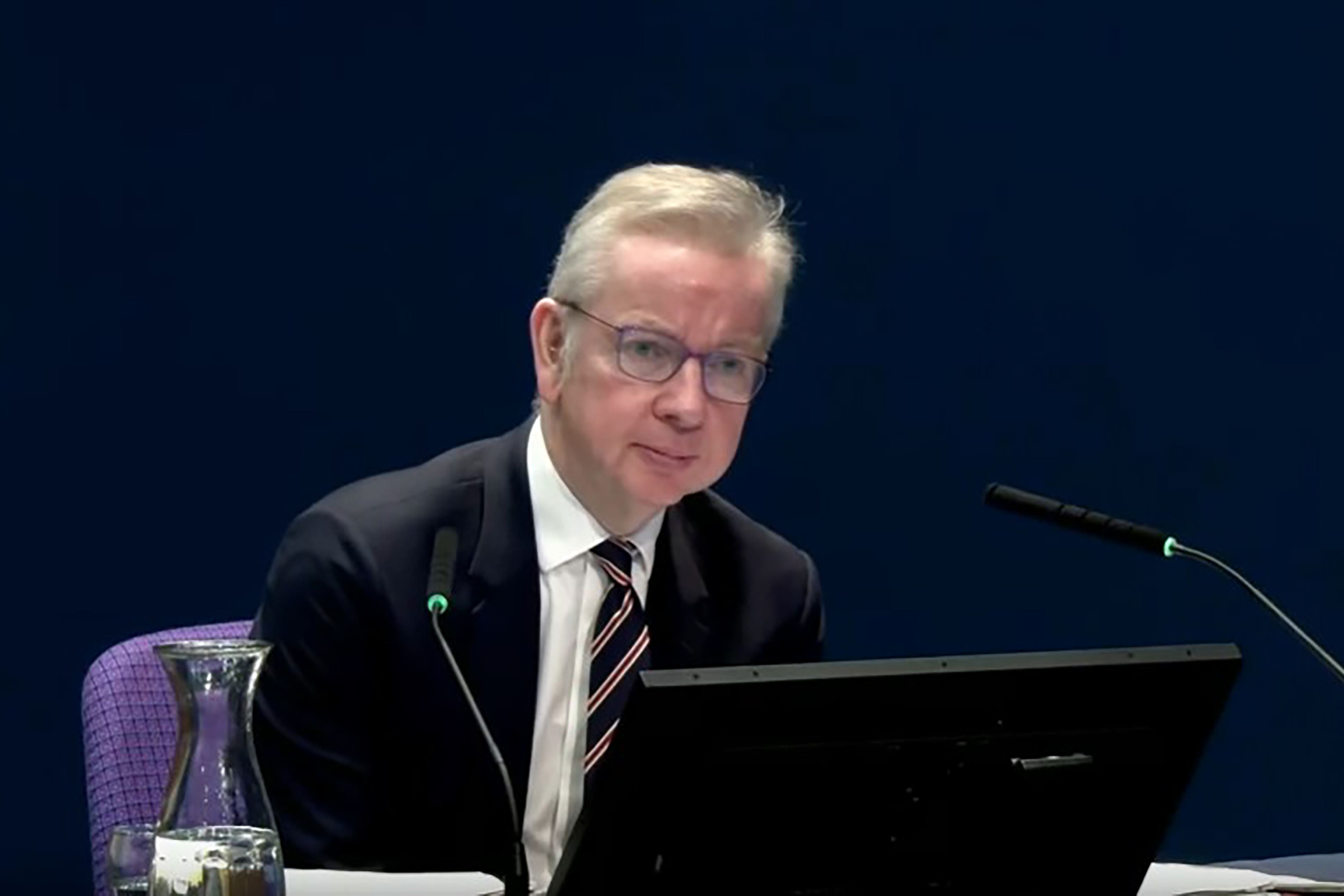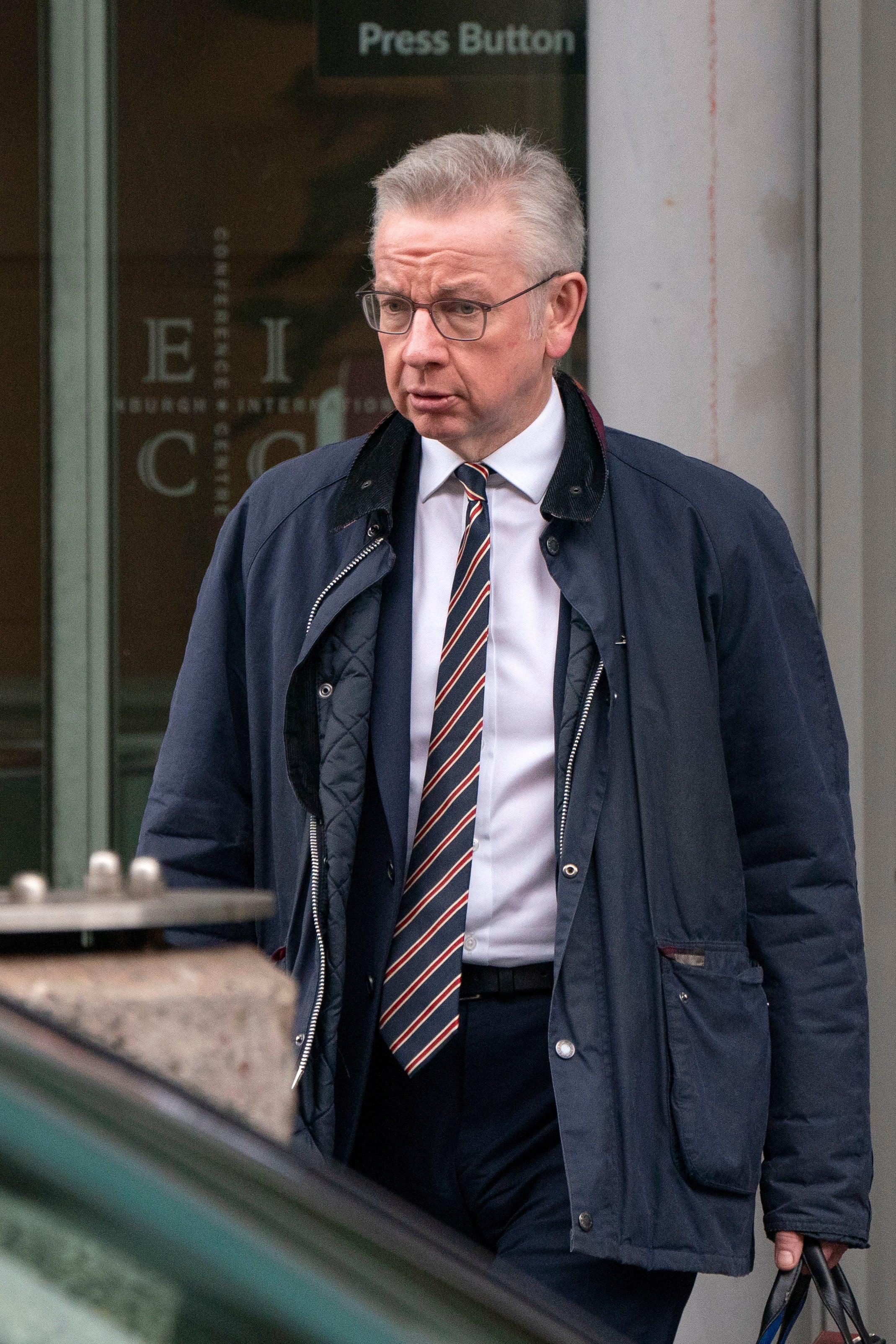Michael Gove accuses Nicola Sturgeon of wanting ‘political conflict’ during Covid crisis
The levelling up secretary accused the SNP of using the pandemic to further its aim of independence to ‘destroy the UK’
Your support helps us to tell the story
From reproductive rights to climate change to Big Tech, The Independent is on the ground when the story is developing. Whether it's investigating the financials of Elon Musk's pro-Trump PAC or producing our latest documentary, 'The A Word', which shines a light on the American women fighting for reproductive rights, we know how important it is to parse out the facts from the messaging.
At such a critical moment in US history, we need reporters on the ground. Your donation allows us to keep sending journalists to speak to both sides of the story.
The Independent is trusted by Americans across the entire political spectrum. And unlike many other quality news outlets, we choose not to lock Americans out of our reporting and analysis with paywalls. We believe quality journalism should be available to everyone, paid for by those who can afford it.
Your support makes all the difference.Nicola Sturgeon used the Covid pandemic to further the aims of Scottish independence and “destroy the UK”, Michael Gove has claimed.
The levelling up secretary accused the SNP of searching for “political conflict” during the pandemic in order to make the case for an independent Scotland.
While Mr Gove said the Scottish government’s decision making was “overwhelmingly driven by a desire to do the right thing”, he told the Covid inquiry Ms Sturgeon sought “political advantage at certain points”.

“There are and were occasions when the Scottish government was thinking politically… and of course it is the case the SNP has a political mission to achieve Scotland’s independence, i.e. destroy the United Kingdom,” Mr Gove said.
He added that it would be “naive” to think “highly skilled politicians” including Ms Sturgeon would not seek “political advantage at certain points”.
Mr Gove’s appearance at the inquiry came before former Scottish health secretary Jeane Freeman accused the UK government of lacking “sufficient urgency” at the outset of the pandemic.
Ms Freeman said there were times when “Scottish government officials were frustrated by slow information or the absence of information”.
“My feeling [at that Cobra meeting in March 2020 was that there wasn’t sufficient urgency from the UK Government and I do recall querying at that meeting, their intention to focus on flights to the UK from Wuhan,” Ms Freeman added.
The pair were giving evidence to the inquiry on how the UK and Scottish governments worked together during the pandemic.
The then cabinet office minister Mr Gove said there were tensions at times within the UK government at Ms Sturgeon diverging from decisions taken in Westminster or making decisions unilaterally.
One example included Mr Gove describing "unhappiness” in Downing Street when Ms Sturgeon appeared to ban events of over 500 people in Scotland unilaterally.

He went on to tell the inquiry some of the language used by Scottish officials led him to believe there was a "desire for differentiation" from the UK government.
He said a “temptation” among the SNP to seek political advantage was clearly there “given the cause to which they have devoted their lives (independence)".
“I think that almost all of the time, decisions were made in the public health interests of the people of Scotland,” he said.
He added: “The Scottish government believed that if its handling of these matters was somehow superior to that of the UK government, that people would appreciate and recognise that and therefore people would be prompted to think: ‘Well, how much better might life be if we gave the Scottish Government more powers and we moved further down the path to independence?’.”
The top Tory minister went on to claim that Ms Sturgeon and then prime minister Boris Johnson were "not soulmates" but they were "able to secure effective co-ordination on substantive policy".
Mr Gove served as a Cabinet Office minister during the pandemic, with a focus on intergovernmental relations and told the inquiry the relationship between the UK Government and the devolved administrations was "for the most part constructive" when dealing with the day-to-day management of the pandemic.
He said "we can learn from how we responded to this virus to consider how the devolution settlement can be evolved in the future" but the current balance of the constitutional settlement is "broadly right".
Join our commenting forum
Join thought-provoking conversations, follow other Independent readers and see their replies
Comments